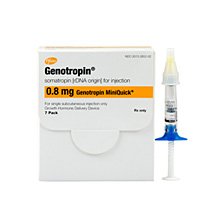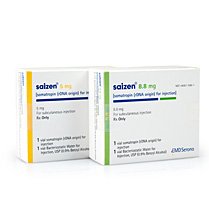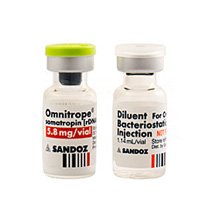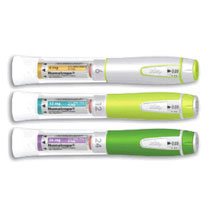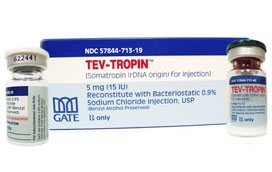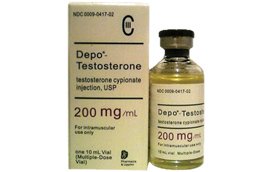What Are The Different Types Of Hormones In The Human Body

In this article, we will be discussing the following different types of hormones in the human body:
- Growth hormone
- Testosterone
- Estrogen
- Progesterone
Each one of these hormones is important for the human body in both different and similar ways. When any one of them becomes depleted, the person may experience symptoms. This is why hormone replacement therapy (HRT) is so popular. HRT has been clinically proven throughout years of research studies to be able to safely put back bio-identical hormone into the body. With successful HRT, side effects may no longer occur and a person can often feel better than they did before they began therapy.
Taking time to learn and ask questions about the different types of hormones in the human body is wise for keeping your health optimal. Most professionals advise that a prospective patient of HRT learns about the varying types of hormones in the human body and their functions. This way they can become an educated consumer. They can then be fully involved in the HRT process for realistic expectations and great results.
Types Of Hormones In The Human Body And Their Functions
It is very wise for prospective patients of HRT to learn about the different types of hormones in the human body and their functions. Below you will find a bit more detail about growth hormone, testosterone, estrogen and progesterone.
1. Growth hormone
Growth hormone (GH), which is also called Somatotropin, is a 191 amino acid sequence and single chain peptide hormone. This hormone is essential for optimal health in both men and women. According to most reputable sources, GH is secreted by the pituitary gland into the blood stream in spurts throughout the day. However, most of it is released during deep, restful sleep. Growth hormone functions to stimulate the body’s growth and development. It is responsible for the regeneration of the body’s cells and tissues. The Mayo Clinic shared that growth hormone helps to maintain organs and tissues throughout a person’s lifespan.
Expert sources state that some of the main functions of growth hormone are to:
- Increase strength and energy
- Increase bone mineral density to strengthen bones and ward off osteoporosis
- Promote growth of all internal organs including the brain
- Strengthen the immune system
- Increase protein synthesis
- Stimulate amino acid uptake
- Help with tighter skin elasticity
- Help with fat loss, weight maintenance and building muscle mass
- Help keep emotions stable and mental cognition acute
Without enough of this hormone, both men and women may experience symptoms that can range from mild to severe. A person will lose GH as they grow older. This is why hormone replacement therapy (HRT) has been becoming more and more popular. When done correctly and legally, it can keep growth hormone at normal and balanced levels for continued optimal health and wellness.
2. Testosterone
Testosterone is one of the most important hormones in the male body, according to the National Institutes of Health. However, it is important to know that women need it too in lesser amounts. Testosterone is in a class of males hormones called androgens. It is produced by the testes in men, in the ovaries in women and some of this hormone is produced in the adrenal glands in both genders.
The hypothalamus (located in the brain), sends signals to the pituitary gland (located at the base of the brain) which send signals to the testes, ovaries or adrenals about how much of the hormone to produce. With age, this system of creating testosterone slows down and can cause low T or a testosterone deficiency.
Expert sources state that the primary functions of testosterone are to:
- Increase sexual drive and libido
- Help with erectile dysfunction
- Increase energy, stamina and endurance
- Create stronger muscles
- Help with weight loss
- Help with a more stable emotional well being
- Decrease mild depression
- Decrease anxiety
- Decrease irritability, mood swings and agitation/anger
- Help with balding or thinning hair
- Help keep bones strong
- Help with good heart health
Keeping testosterone levels normal and balanced for each person’s age, body chemistry and body composition is vital. The hormone helps to create good health and quality of life.
3. Estrogen
In females, estrogen is created in the ovaries and is the primary hormone in women. Men need the hormone too, but in smaller amounts. The term estrogen refers to a group of hormones (estrone, estradiol and estriol) and is vital for sexual and reproductive development. Estrogen has other important functions too.
According to the Cleveland Clinic, estrogen helps with bone formation. Since women need more estrogen than men, they are four times as likely to develop osteoporosis when levels get to low, than men, say professionals at the Cleveland Clinic.
Expert sources state that the main functions of estrogen are to:
- Help to regulate the menstrual cycle in women
- Help to control lactation in pregnant women
- Help with bone formation and the strengthening of bone mineral density
- Help with vaginal lubrication
- Control protein synthesis
- Help with the health of skin and hair (according to Johns Hopkins Medicine)
- Help with skin collagen creation
- Help with thickening skin and increasing the blood supply that goes to the skin
- Help with ovarian cysts (according to professionals at Boston Medical Center)
- Increase HDL (good) cholesterol
- Decrease LDL (bad) cholesterol
- Improve emotional health
- Lower the risk of developing atherosclerosis and heart disease
- Help men to metabolize cholesterol
The importance of having the right amount of estrogen for both men and women should not be overlooked. Testing is easy and quick and with the right amounts of this vital hormone in the body, one can have the opportunity to look and feel their best at any age over 30.
4. Progesterone
Progesterone is a hormone that has the main responsibility of regulating the menstrual cycle and pregnancy. It also can contribute to how a woman experiences menopause. Progesterone is produced in the ovaries. A woman must have the right amount of the hormone in order to maintain optimal health.
Expert sources state that some of the main functions of progesterone are to:
- Help protect the body against breast cancer and endometrial cancer
- Improve a wide variety of premenstrual symptoms
- Maintain the lining of the uterus
- Help to normalize the amount of oxygen in the cells
- Help with weight loss
- Help burn fat that will be used for energy
- Help decrease mild depression and anxiety
- Help keep blood sugar levels in normal range
- Assist with the action of the thyroid
- Help to increase sexual drive and sexual libido
If you have any questions about the different types of hormones in the human body and their functions, feel free to use our contact form to reach one of our expert clinical advisors. We are here to help you decide if hormone replacement therapy might be right for you.

















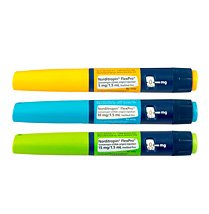
 Norditropin
Norditropin